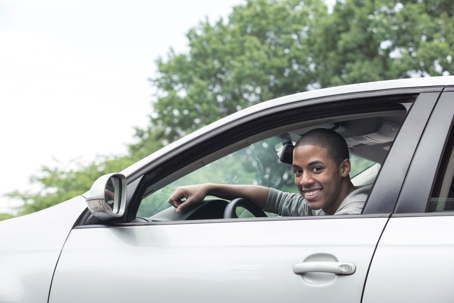Adolescent drivers are more likely than adult drivers to have car accidents. And most of us think we know why they do - inexperience.
Well – researchers have looked at safety data to try and gain a better understanding of why teenage drivers crash, and here is what they've found:
- Peer relationships shape teenage behavior. Adolescents can behave irresponsibly when they're in groups – a result of peer pressure. These pressures can impact driving behavior in dangerous ways.
- Teenagers tend to exhibit optimistic bias – thinking bad things won't happen to them – resulting in poor decision-making and dangerous behavior.
- Hormonal shifts in males and cultural beliefs about maleness and driving fast lead to dangerous driving behavior.
- Teenage drivers tend to be emotional, and adolescent mood swings affect driving behavior adversely.
- Good parenting matters. A study of 2,000 young drivers in Michigan found that the level of parental monitoring and permissiveness was strongly associated with driving behavior. Permissiveness in general and parental permissiveness around early adolescent drug/alcohol use (before age 15) is associated with a higher risk for car accidents.
- A subset of the population is known as sensation seekers, individuals who enjoy risky behavior. Teenagers in this group appear much more likely to drive at dangerous speeds, experiment with drugs and alcohol, and drive while impaired.
- Yes – experience matters. Researchers have found that new drivers experience about 5.9 car crashes for every 100 licensed drivers during the first six months of driving; a rate that subsequently falls to 3.4 car crashes per 100 drivers for the next six months and then to between 1.3 and 3.0 crashes per 100 drivers for the months following. Another study examined environmental factors like narrow roads, curves, and steeply graded roads and their impact on accident rates. In this study, 16-year-old drivers showed a greater likelihood of crashing due to environmental factors than older drivers.
- Speed (and poor judgment) kills. In one study – teenage drivers – both boys and girls, reported driving at speeds of 80 miles per hour or more in the last year.
- Distractions are a menace – and getting worse. We have written extensively about the influence of cellular technology on driver safety. This factor is a significant problem for both adult and teen drivers – but a hazardous one for inexperienced drivers.
So, what is a parent to do?
Here are a few things to consider:
- Always set a good example when driving. Never drink and drive or text and drive.
- Talk to your children (even long before driving age) about the risks and dangers of driving.
- Make sure the car your child is permitted to drive is mechanically safe.
- Rules can save lives. Setting and enforcing reasonable limits on distances traveled, the roads that can be used, and the times when driving is permitted are excellent places to start.
Research shows that you can cut your teenager's risk of a serious car accident in half by staying involved, setting rules, and being supportive. Having a parent involved in a teen's life matters!
If you or your child are ever injured in a car accident, know that the Hartford car accident lawyers at RisCassi & Davis have been assisting drivers injured in accidents for 65 years. And we have received both state and national recognition for our work in this area. If you're ever in a car accident of any kind and would like a free consultation with one of our Connecticut car accident lawyers, please contact us. There is no obligation.

